MORE THAN TREES
Community, education and beyond.
SUPPORTING OUR COMMUNITY
Superior Pine employees are not only dedicated to this organization, we are dedicated to this land and community we love! Many of us have multi-generational ties to this area and our care for those in this area runs deep.
OETTMEIER FOUNDATION
In recognition of the contributions to the Company as well as the Community by the Oettmeier family, Superior Pine Products Company administrates the non-profit organization, The Oettmeier Foundation.
The Oettmeier Foundation’s main purpose is to use and apply its funds in support of charitable and educational causes in and around the greater community of Fargo, GA. Each year various schools and non-profit groups submit applications for grants that are provided in support to various beneficial projects in the Fargo area. From County schools to volunteer fire departments, The Oettmeier Foundation assists those who are working hard to improve this local rural community near the Okefenokee Swamp.
If you’re interested in making a donation, please contact Scott Griffin at 912-637-5261.
YOUTH HUNT
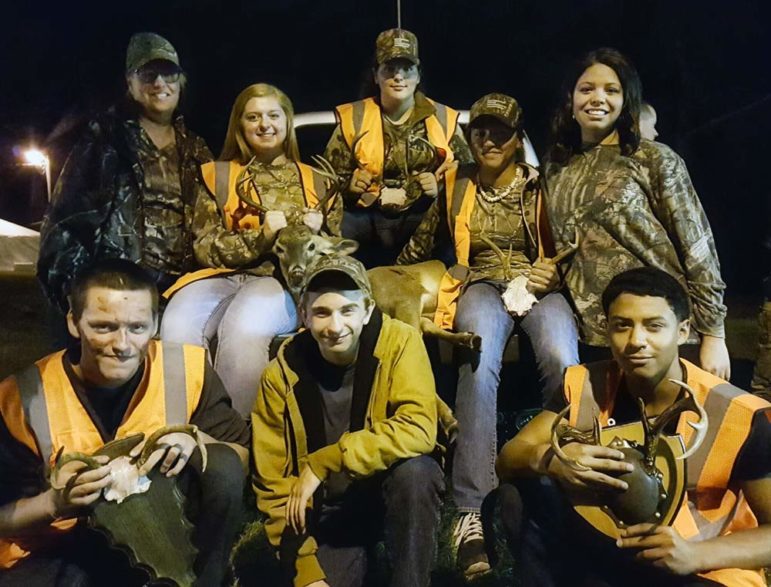
We have partnered with Georgia Sheriffs’ Youth Homes since 1990.
“Each year we sponsor a youth hunt where we provide these amazing kids with a day of enjoying God’s creation, going hunting alongside a Superior employee as a mentor for the day. It’s more of a fellowship with these kids and our chance to show them we care. Some years we get to see kids we’ve met in past years. It’s something we really enjoy doing. We hope to give these kids a break from their day to day and a love for being outside and enjoying God’s creation. We love being around them and it does us more good than it does them I think! They’re really fun to be around.” – Robbie Lee
STEM LABORATORY
Thank you to the Clinch County Elementary/Middle School for supporting agriculture to lower grade students by providing hands-on experiences through the STEM laboratory!! Our joy through both Superior Pine & Superior Berries was sharing in their excitement to learn more about agricultural science!!
October 2019 – Superior Berries
Clinch County Elementary / Middle School partnered with Superior Berries to bring an educational agricultural experience to students that’s unlike any other through the amazing STEM Laboratory.
December 2019 – Superior Pine
The STEM Laboratory helped us plant long leaf pine trees. Each student wrote their name on a wooden sign and we put the sign by the tree they planted. Next year they can come back and see how it’s grown.

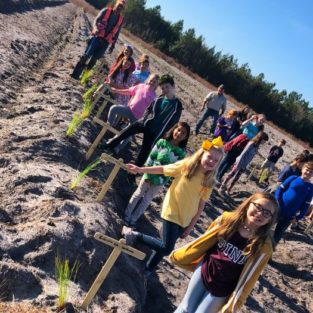

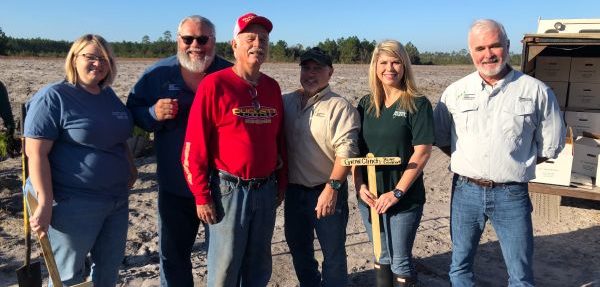
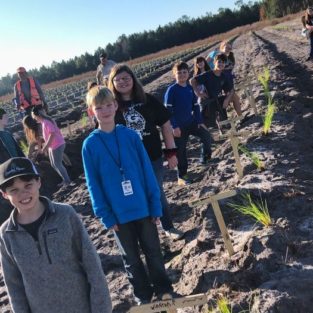
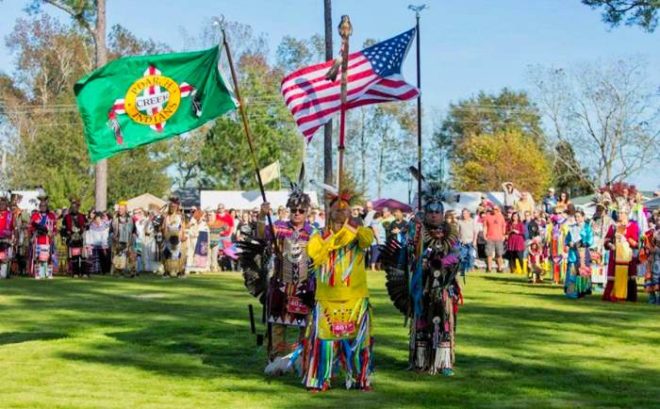
THE SEMINOLE INDIANS FROM THE CREEK TRIBE AND SUWANNEE RIVER
The Creek Indians built their towns along the banks of rivers or “creeks” and were referred to as the Indians “who lived along the creek” – which is how they got their name. They were farmers and their towns had existed in the same location for hundreds of years. They were not nomadic like the western or plains Indians. Each year they grew and harvested crops of corn, squash, and beans. They celebrated the planting of their crops in Spring, first harvest, and last harvest.
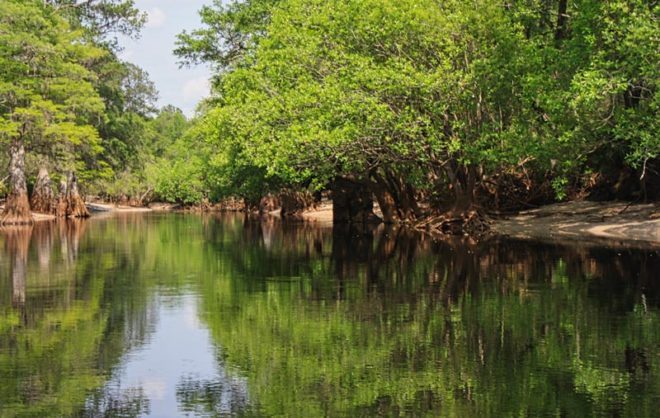
THE SUWANNEE RIVER
The Suwannee River is a federally designated wild river. It is the only major waterway in the southeastern United States that is still unspoiled. The Suwannee flows from the Okefenokee Swamp in southern Georgia to the Gulf of Mexico in Florida.
In the 1700s the Seminole Indians, or “wanderers” from the Creek tribe of Georgia were on the Suwannee. Old logs buried deep in the river were perhaps once parts of rafts on which they drifted down from Georgia.
The Origin of the Fargo Community Until 1920
White Paper written May, 1972 by Edwin A. Griffis for history class at Valdosta State College.
“There are many values deep rooted in rural America which we can not afford to lose.” – Edwin A. Griffis, 1972.
People living in an isolated area such as this are generally free from pollution, enhanced surrounding natural beauty, and concerned for their neighbor. They are the stout hearted Americans, kind, with a sense of humor and a moral contrived destiny. If America can be saved, their kind will do it.
Under a canopy of tall pines and oaks on the grassy bank of the Suwannee River rests the Fargo community. Fargo is inseparable from the Suwannee River and the Okefenokee Swamp because the only natural inlet into the swamp is through the Fargo entrance.
The first known permanent English settler in the Fargo area was Josiah Mixon in 1852. He and his wife settled here with a two wheeled cart and an ox. His brother moved to the area 2 years later. Rainy season caused challenges crossing the Suwannee, and the area, called “Low Deaver” was a thoroughfare for people traveling into and out of Florida. They built a ferry for crossing to hold a wagon or cart.
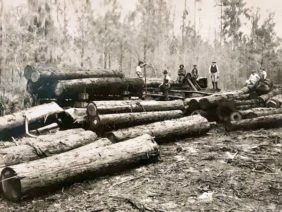
“The forests echoed to the sound of ax, saw and whip cracking teamsters.”
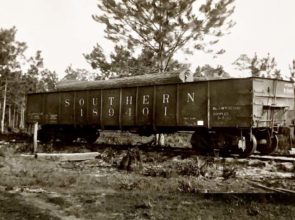
“In early 1900’s, the creation of the railway lines in Fargo opened up transportation to markets and changed the soft rattle of pine needles in the wind to penetrating locomotive whistle and roar of a steam-powered saw mill.”
After the civil war, a stage coach was established that used the ferry crossing at Low Deaver. In 1880 there was the first mail delivery at a private home near Low Deaver. In 1898, voter registration listed 43 voters in what is now known as Fargo.
Fargo officially got its name in 1899. The origin of the name is unknown. Some postulate that it came when the railroad project terminated around what is now named Fargo… and it was as Far as they could Go. Another suggestion is that the postal service created it so the community would have a postal designation. Around this same time, machinery was moved in to make the forested area around Fargo one of the largest forest operations in the country of that day.
Tram roads (substandard rail lines) were built in the forests to bring forth the logs and crude gum. The Suwannee river was also used to float rafts of logs to the mill. A small wood-burning steam boat operated for many years receiving the barrels of distilled gum to deliver to Fargo.
“Life in Fargo was anything but slow, dull and uninteresting. Social life there consists of an endless series of parties, fish frys and dances.” – William P. David, on his days in Fargo in the early 1900’s.
